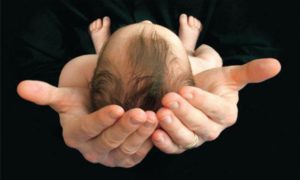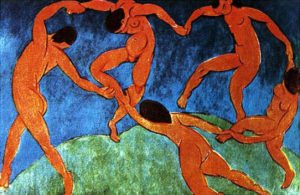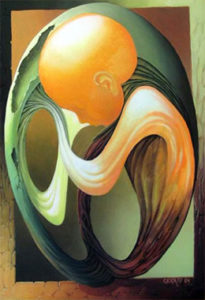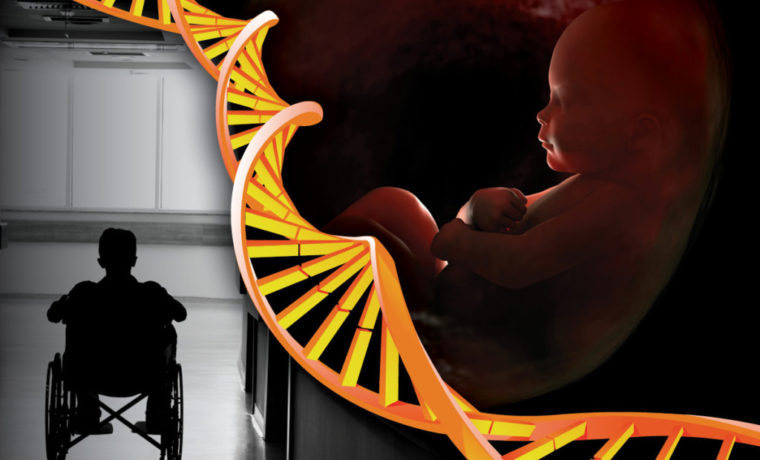 One of the great challenges of humanity today, and especially for Christian Catholics is to know how to discern between knowledge that complements the wisdom of life, and knowledge that leads us away from this wisdom, placing us at the service of death. Developing this ethical capacity for discernment is today, a demand of our Christian existence: giving the reasons for our hope with respect, simplicity and a clear conscience (Cf. 1 Pet. 3:15-16).
One of the great challenges of humanity today, and especially for Christian Catholics is to know how to discern between knowledge that complements the wisdom of life, and knowledge that leads us away from this wisdom, placing us at the service of death. Developing this ethical capacity for discernment is today, a demand of our Christian existence: giving the reasons for our hope with respect, simplicity and a clear conscience (Cf. 1 Pet. 3:15-16).
We have a challenge: carry out some fundamental ethical discernments in the light of Christian values in relation with the human person, the advances of the biomedical sciences, conjugal sterility, undesired pregnancies, the manipulation of embryos, aspects of sexual and affective life, poverty, violence, suffering and death. In all these situations, Christian values are a light of hope and an affirmation of life for humanity.
“A particularly crucial battleground in today’s cultural struggle between the supremacy of technology and human moral responsibility is the field of bioethics, where the very possibility of integral human development is radically called into question. In this most delicate and critical area, the fundamental question asserts itself forcefully: is man the product of his own labors or does he depend on God?” (Caritas in veritate 74)
The Encyclical, Evangelium Vitae, speaks of the birth of this ethic as one of the signs of hope in its affirmation of a present-day culture of respect for life: “Especially significant is the reawakening of an ethical reflection on issues affecting life. The emergence and ever more widespread development of bioethics is promoting more reflection and dialogue — between believers and non-believers, as well as between followers of different religions — on ethical problems, including fundamental issues pertaining to human life.”
Choose the paths of life
We are called to “choose between paths that lead to life and paths that lead to death (cf. Dt. 30: 15). Paths of death are those that lead to squandering the goods received from God through those who preceded us in the faith. They are paths that mark a culture without God and without his commandments, or even against God, driven by the idols of power, wealth, and momentary pleasure, which end up being a culture against the human being and against the good of Latin American peoples.”
 Integral Christian Anthropology
Integral Christian Anthropology
“The human being created in God’s image and likeness also has an exalted dignity that we cannot trample and that we are called to respect and promote. Life is freely given by God, a gift and task that we must safeguard starting at conception in all its stages, until natural death, unambiguously… if we want to maintain a solid and inviolable base for human rights… otherwise, the circumstances and conveniences of the powerful will always find excuses for abusing persons.”
The dignity of a person is not given, it is recognized; it is not awarded, it is respected. It is written in the depths of each human being, it does not depend on their level of development, on their health, on their qualities, their abilities, or even their behavior. Every human being, whatever their state or condition, is an inseparable unit, body and soul, open to transcendence.
Promoting a creative dialogue between science and faith
Globalization influences the sciences and their methods, eliminating ethical guidelines. In this context, we, the disciples of Jesus, must promote a dialogue between science and faith and work for the defense of life. This dialogue must be carried out based on the ethics and the bioethics of Christian inspiration.
The pastors of our Church in Aparecida said: “Our priority for life and family, both of which are laden with issues debated in ethical matters and in bioethics, impels us to cast the light of the
Gospel and the Church’s magisterium on them.”
 The ethical questions raised by the rapid advances of science and its technological applications must be examined with due respect for the dignity of the human person and respect for human rights. Ethics and science must walk together and reciprocally illuminate one another with the objective of perfecting life and respecting the dignity of the human being.
The ethical questions raised by the rapid advances of science and its technological applications must be examined with due respect for the dignity of the human person and respect for human rights. Ethics and science must walk together and reciprocally illuminate one another with the objective of perfecting life and respecting the dignity of the human being.
Need for ethics in research involving human beings
One of the critical ethical issues in the context of scientific research with human beings is ensuring that each person is not transformed into a mere object. There is no lack of reports of human manipulation in many countries from our region. Faced with the absence of ethical directives and social oversight in research, multinational medical laboratories find a fertile ground for using vulnerable populations in their research. Fortunately, in many countries, there are ethical norms implemented with a network of committees of ethics of research with human beings that offer ethical vigilance and social oversight. It is necessary to create a new cultural ethic of protection of the human being given the many different situations of vulnerability.
Being the prophetic voice and solidarity with those who have no voice
“The child growing in its mother’s womb and people who are in their declining years are a claim for dignified life that cries out to heaven and that cannot but make us shudder. The liberalization and routinization of abortion practices are abominable crimes, just as are euthanasia, genetic and embryonic manipulation, unethical medical testing, capital punishment, and so many other ways of assaulting the dignity and life of the human being.”
At the same time, we must be prophets of life “in the midst of the idols of profit and efficacy, insensitivity to the suffering of others, attacks on life in the womb, infant mortality, deterioration of some hospitals, and all the modalities of violence against children, youth, men and women.”
Donations and Transplants
Thanks to the scientific progress and the medicine that made possible the beginning of this era of transplants, today many sick people have a second chance to live. Heart, liver, kidney and lung transplants are concrete possibilities to keep living.
The Christian Catholic ethic promotes and encourages the donation of blood and organs and carrying out these transplants as a sign of solidarity.
“No one has greater love than he who lays down his life for his friends” says Jesus. A heart donor must be accurately diagnosed with the criteria for encephalic death established by the scientific community. There are no lack of reports of commerce and the existence of an organ market in our continent, which we must combat with all our strength and available instruments. Donation can never become a commerce; it is an act of love and solidarity.
With the aging of the population, there is an increase in the number of chronic-degenerative and incurable diseases (Parkinson’s, Alzheimer’s), as well as an increase in the number of people with terminal cancer, HIV/AIDS, among other sicknesses that make up a true challenge both for medicine as well as for the Christian community.
When there is no longer a possibility for cure, we are called to carry out palliative care, defined by the WHO as “an integral approach for the quality of life both of patients and their families faced with the problems associated with life-threatening illnesses. Takes into account the prevention and relief from suffering through the early recognition and a serious evaluation of the criteria for treatment of pain and other physical, psychic and spiritual symptoms.”
Palliative care:
♦ Values the possibility of maintaining optimal control of pain and other symptoms that cause suffering
♦ Affirms life and considers death a normal process
♦ Does not advance death (euthanasia) nor delay it (dysthanasia).
♦ Integrates psychological and spiritual aspects in care for the sick
♦ Offers a support system to help the sick to live as actively as possible before and even in the moment of their death.
♦ Helps the family to care for the sick person until the moment of death as well as to mourn.
Benedict XVI suggests: “It is necessary to promote policies that create the conditions in which human beings can put up with incurable diseases and face death with dignity.” In this vein, the Pope emphasizes that it is necessary to create Palliative Care Centers that offer integral assistance, guaranteeing the sick the human help and spiritual accompaniment that they need.
















Camillians on Facebook
Camillians on Twitter
Camillians on Instagram